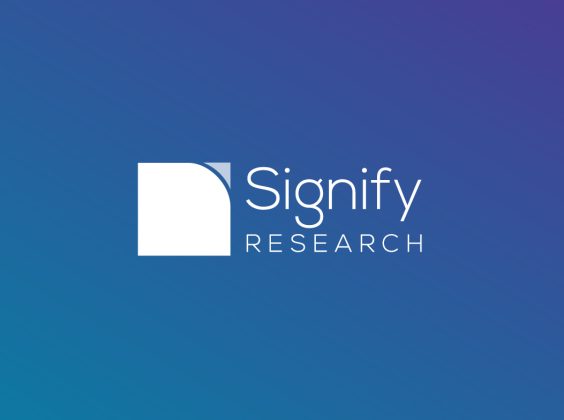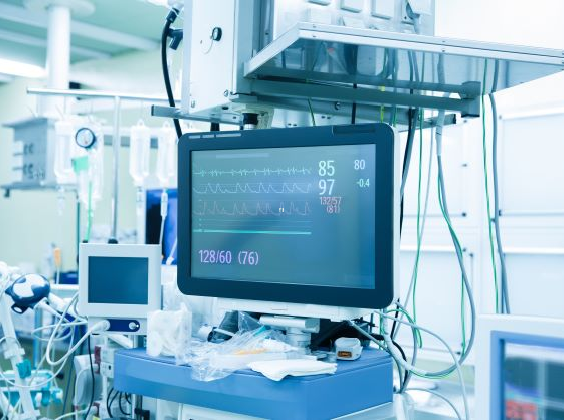
Written by

23rd September 2021 – After several consultations, Baxter finally announced in early September 2021 the planned acquisition of Hillrom for $156.00 per share. This will equate to a total equity value of approximately $10.5 billion and a total enterprise value of approximately $12.4 billion, including the assumption of debt.
- Baxter provides a broad product offering across the critical care, nutrition, renal, hospital and surgical product segments.
- Hillrom’s digital and connected care solutions include smart bed systems, patient monitoring and diagnostic technologies, respiratory and surgery workflow solutions.
- The acquisition aims to enhance the digital offering each company currently provides, targeting the growing demands from both the acute care and home care markets and expanding international presence.
The Signify View – Impact on the Clinical Care Market
Hillrom is an active player in the diagnostic cardiology and patient monitoring markets; however, it holds a relatively small market share compared to the big giants of Philips and GE Healthcare. The recent pandemic has uplifted interest in connected care solutions not only in the acute care market, but also in the home health market, in which Hillrom has made good progression to expand its solutions. Since the acquisition of Welch Allyn in 2015, Hillrom has enhanced its product line further with a clear drive toward development of its connected care solutions. Hillrom has made additional important acquisitions in the last few years affirming its aim to advance its connected offering within its patient support systems product line. These include:
- Mortara (2017) – a diagnostic cardiology company.
- Voalte (2019) – a mobile healthcare communication company.
- Breathe Technologies (2019) – a respiratory care solution provider.
- Excel Medical (2020) – a vendor-agnostic device integration platform solution provider.
- BardyDX (2021) – a company that provides ambulatory ECG patches and associated services.
- EarlySense Ltd. (2021) – a contact-free continuous monitoring solution provider.
Baxter is a leading player in the infusion systems market with global presence in the acute care, alternate-site, and home care markets. The addition of Hillrom’s portfolio to Baxter’s wider clinical solutions will generate a more comprehensive offering enabling them to maximise on greater opportunities, specifically in providing connected digital solutions. The importance for devices to be connected and integrated into the medical record system has been heightened during the COVID-19 pandemic, resulting in a drive from many companies to react on this increased interest. The transition to virtual care has enabled clinicians to remained informed of patient conditions and perform timely actions, especially when resources are restrained.
The development and utilisation of remote monitoring of devices, artificial intelligence to identify core parameter changes in COVID-19 patients, and wearable solutions all vastly increased during the pandemic. Transition of care from the hospital to the home was also expedited. A significant uplift in demand for connected solutions was seen not only in the hospital, but also in the patient’s home during the lockdowns in 2020.
How will the merge of solutions compare?
Earlier in the year Signify commented on Philip’s acquisition of Biotelemetry, adding to its diagnostic cardiology offering. This acquisition highlighted Philip’s further expansion into the connected health market, with the expectation that Biotelemetry’s experience in remote services would be bought together across Philips’ Connected Care portfolio, including patient monitoring and respiratory care. Its acquisition of Capsule Technologies has also enabled Philips to garner further expertise in device connectivity and integration.
Although a smaller player overall in the monitoring and diagnostics market, Hillrom is seen as a competitor to Philips in the low-acuity care setting with a competing product offering to Philips in the vital signs monitoring and diagnostic cardiology segments. Its recent acquisitions have also placed Hillrom in the sightline of Philips who have been making a similar play in connected health solutions. Both Hillrom and Philips have made a push toward home health with their product offerings, focusing on connected solutions that enable a smoother transition of patient care throughout the hospital and into the home.
The trend to move patients to low acuity settings to help reduce burden on healthcare costs has further accelerated the push for solutions that can be utilised outside of the higher-cost high acuity settings. The need for digital solutions has increased to ensure patient safety in all care settings. Baxter is expected to utilise the efforts Hillrom has made to enhance its connected offering. The combination of Baxter’ and Hillrom’s product portfolios will also enable more selling power and greater opportunity for expansion. Philips currently doesn’t have an infusion product line, and will be intently following the subsequent product developments the acquisition results in.
Mindray has an even broader offering than Philips with the inclusion of infusion systems in its product portfolio, thus competing directly with both Hillrom and Baxter. Mindray has also made inroads to establish a connected solution offering, recently adding its M-Connect platform to expand its monitoring suite with the ability to access integrated devices and associated data to aid in clinical decision support. To date, Mindray has focused on the acute care market. Unlike Hillrom and Philips, Mindray has had little activity in the home health segment. However, the growing demand for home health solutions is likely to result in future product developments from the company to ensure it remains competitive. Like Philips, Mindray is also expected to be taking note of the developments specifically in connected care from both Hillrom and Baxter.
Closing remarks
Although Baxter’s acquisition of Hillrom is not one that could have been predicted, it is one that will be viewed attentively by other clinical care players. As the healthcare market further transitions to improve the provision of acute care not only in the hospital, but also in the alternate site and home settings, vendors that can offer a broad digital product line to enable a complete offering will be seen positively. Connected solutions will be essential to ensure patient safety and optimum care is provided throughout their care transition. Baxter and Hillrom are anticipated to further solidify their strategy to enhance digital care and communication with new product developments. Other vendors are also expected to consider new options to expand their product portfolios making a further push of connected solutions. All in all, the clinical care market is expected to see some bold moves and competitive plays.
Related Reports
Signify Research has assessed the clinical care devices markets in its report on the clinical care market. “Market Impact Report – Clinical Care Devices – World – 2021” provides a regional and global outlook on the current and projected uptake of clinical care devices. The report blends primary data collected from in-depth interviews with healthcare professionals and technology vendors, to provide a balanced and objective view of the specific markets.
About Signify Research
Signify Research is an independent supplier of market intelligence and consultancy to the global healthcare technology industry. Our major coverage areas are Healthcare IT, Medical Imaging and Digital Health. Our clients include technology vendors, healthcare providers and payers, management consultants and investors. Signify Research is headquartered in Cranfield, UK. To find out more: enquiries@signifyresearch.net, T: +44 (0) 1234 436 150, www.signifyresearch.net
More Information
E: enquiries@signifyresearch.net,
T: +44 (0) 1234 436 150
www.signifyresearch.netwww.signifyresearch.net
